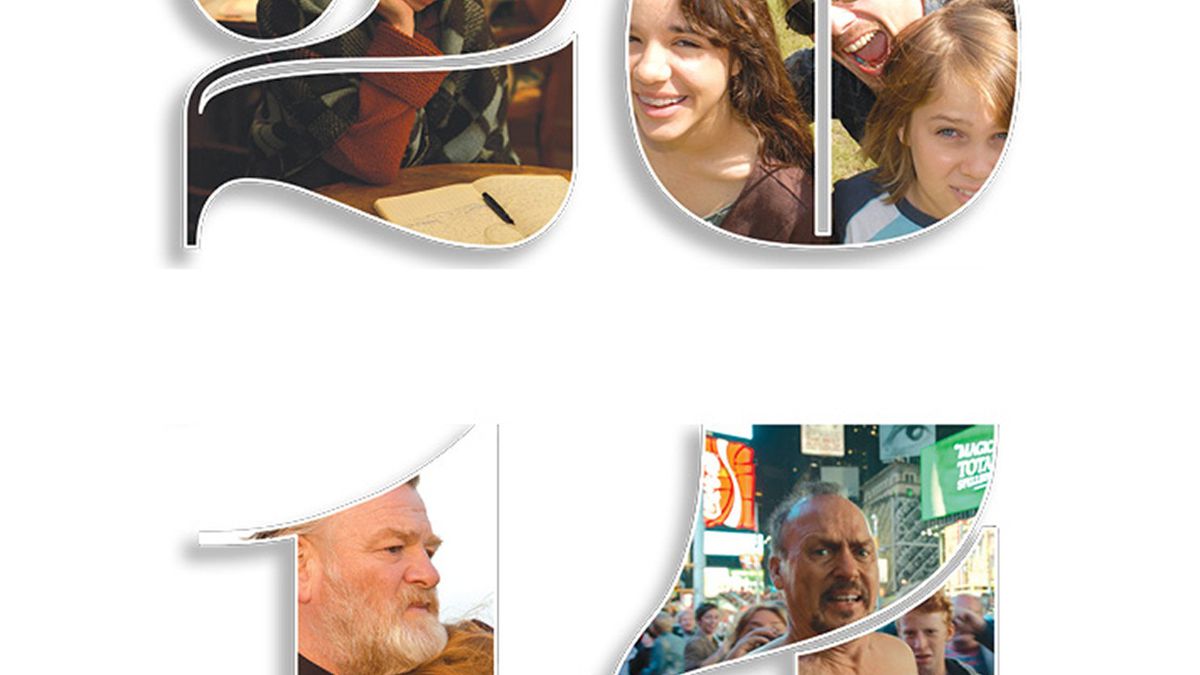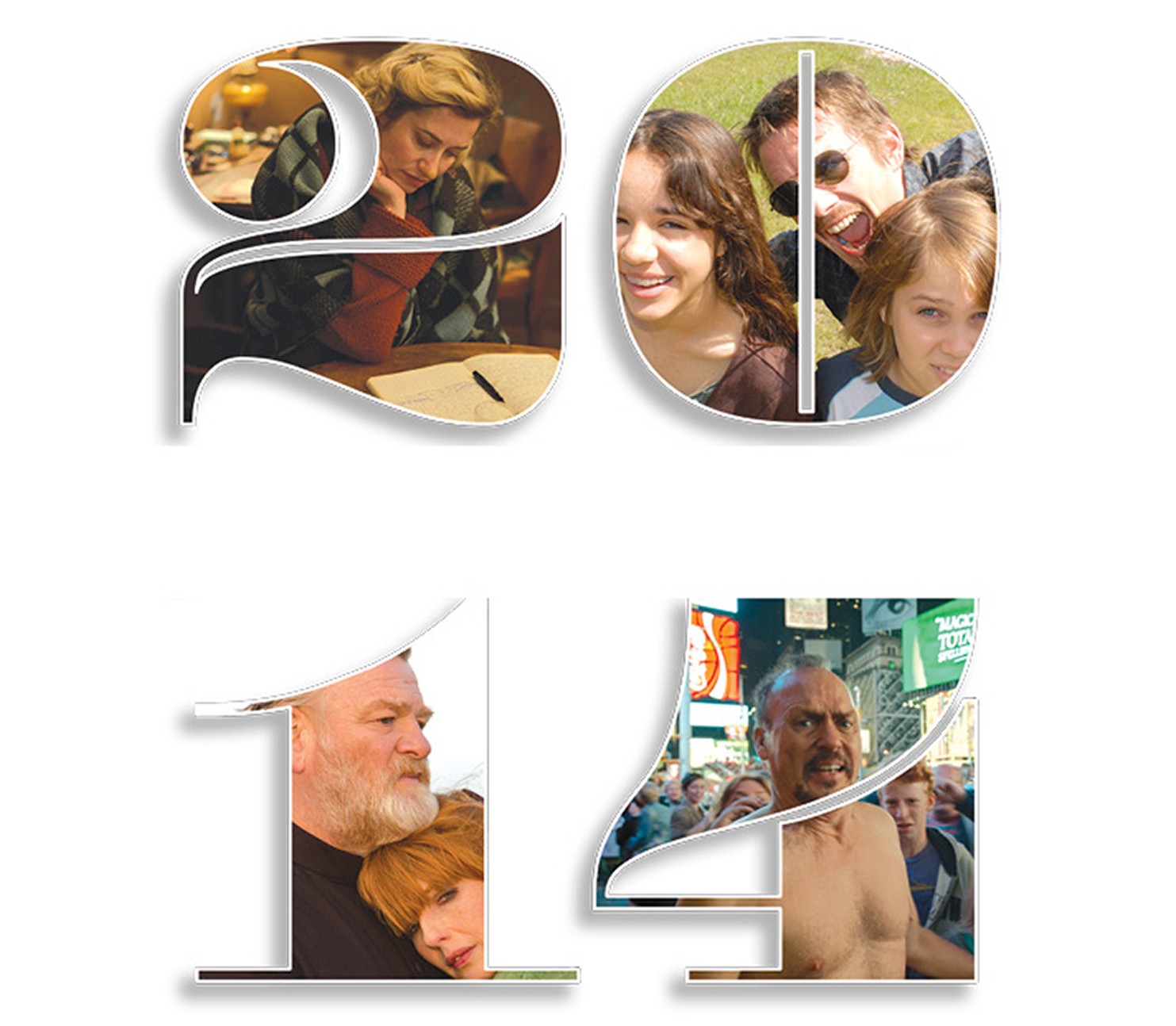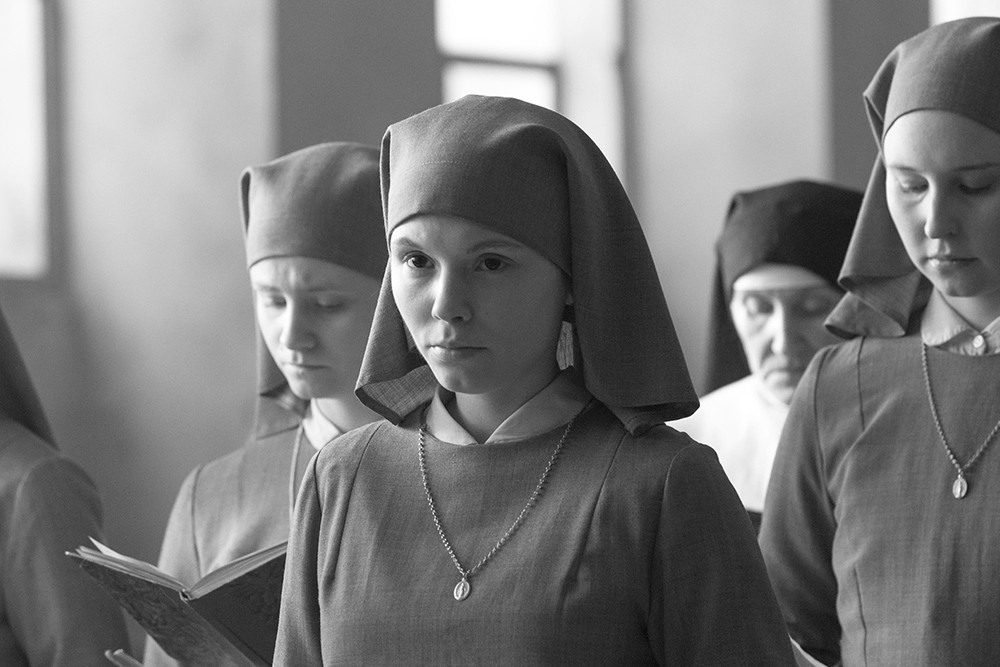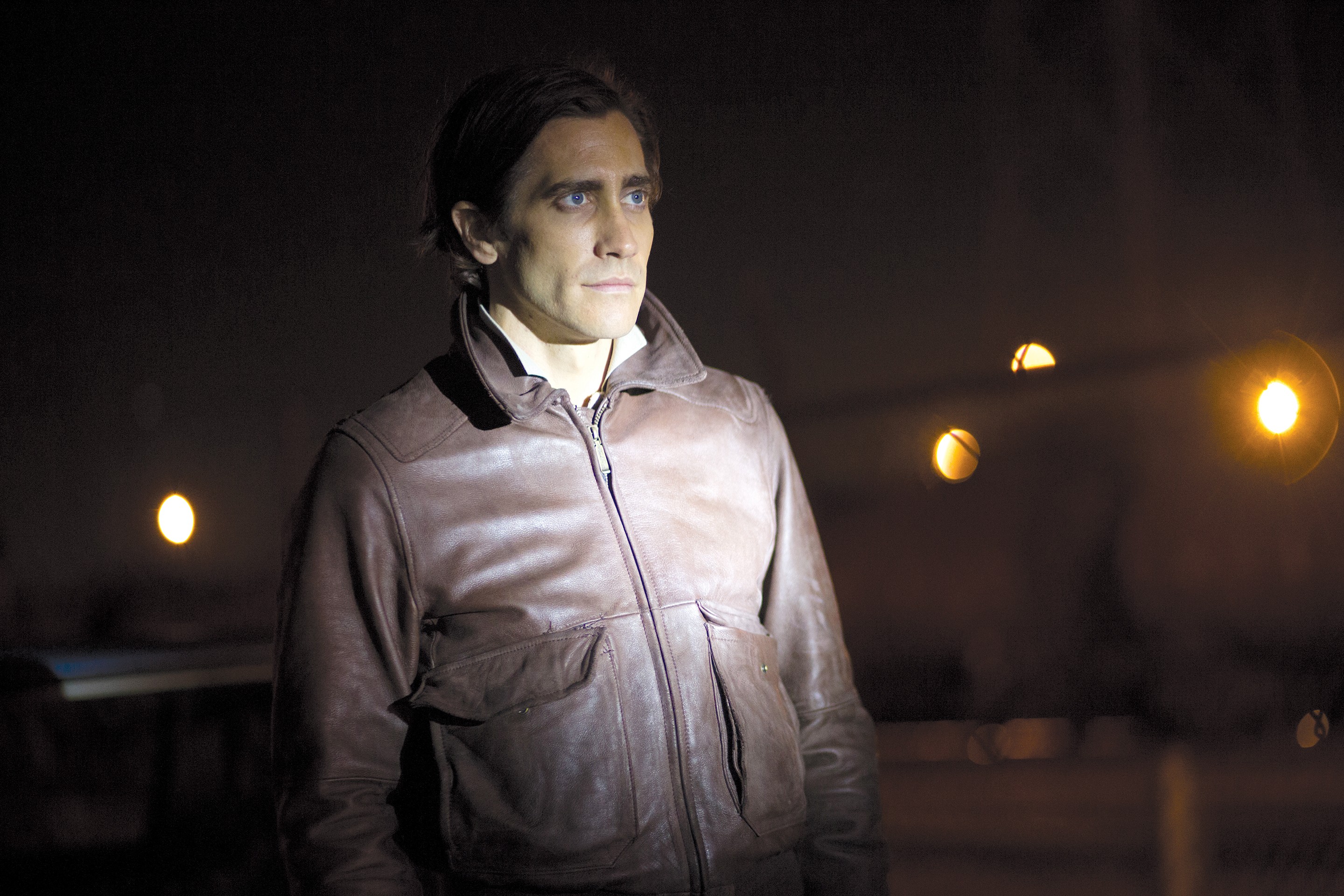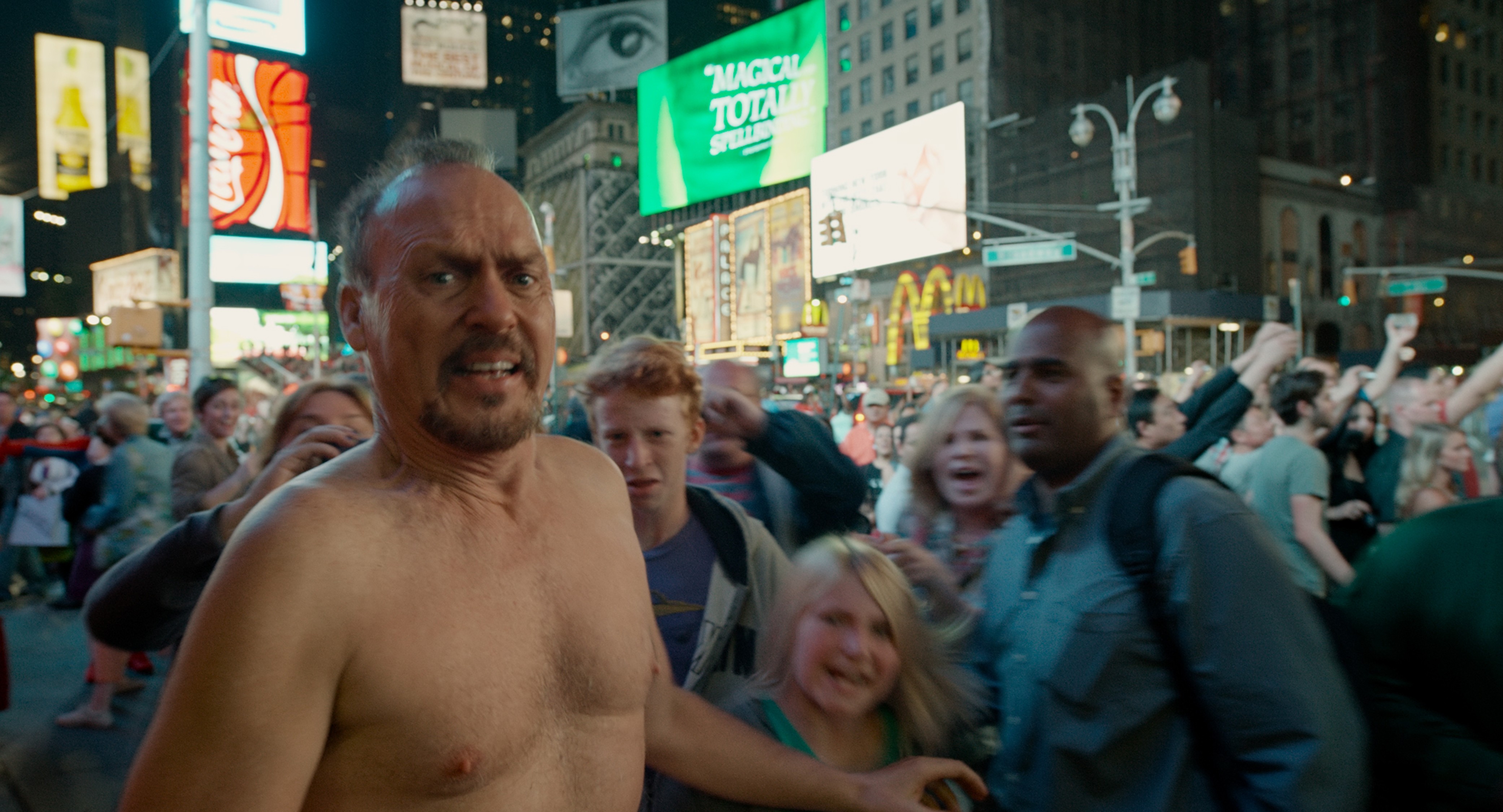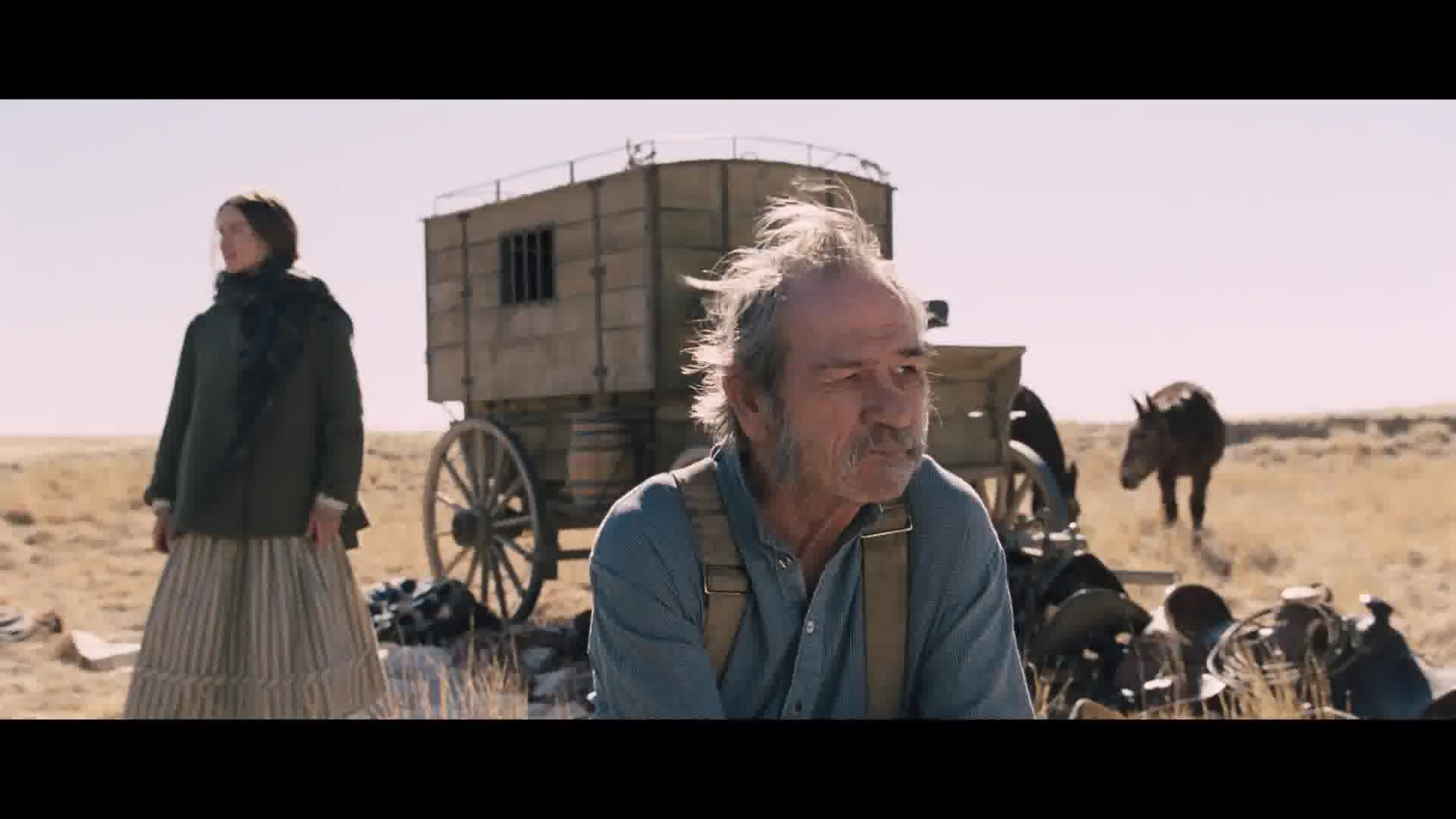Spend any amount of time with critics, movie-biz reporters, or entertainment analysts and they’ll probably tell you how disappointed they were with the movies this year. At the end of August, news outlets called summer 2014 the worst box-office summer in North America in twenty years. Sequels and a lack of freshness were cited as the main reasons for disappointing ticket sales. Later in the year, it was revealed that Hollywood’s position at the top of the worldwide film market is being chipped away by competition from China, a phenomenon that began in the 1980s.
Business analysts weren’t the only ones trumpeting bad news. In the holiday release Annie, a media-savvy character opines: “Product placement — it’s the only thing keeping the movie business afloat.” Even normally levelheaded reviewers couldn’t escape a sour feeling about what was passing in front of their eyes. At the December meeting of the San Francisco Film Critics Circle, critics made offhand complaints of poor performances and clumsy screenwriting — even in films being considered for year-end awards. And now, the Sony hack brouhaha.


2014 was a year as full of happy surprises as any screen year in recent memory. 
Ida (played by Agata Trzebuchowska) is a quiet character study of immense emotional power. 
Jake Gyllenhaal is sublimely creepy in the crime thriller Nightcrawler. 
Michael Keaton soars in his role as a washed-out former action movie star in Birdman. 
Tommy Lee Jones directs, writes, and stars in the frontier drama The Homesman. 
Ethan Hawke (center) and Ellar Coltrane (right) star in Richard Linklatter’s masterpiece Boyhood. 
Emmanuelle Devos stars in the French-produced biographical snapshot of the lesbian writer Violette Leduc in Violette. 
Macon Blair stars in the revenge thriller Blue Ruin, one of the most carefully hidden gems of the year. 
Don’t believe any of it. Take it from a grumpy critic: 2014 was not a rotten year for movies. In fact, it was as full of happy surprises as any screen year in recent memory. You just have to know where to look. Here, in alphabetical order, are the year’s ten best movies: Birdman, Blue Ruin, Boyhood, Calvary, Gone Girl, The Homesman, Ida, A Most Violent Year, Nightcrawler, and Violette.
The Express reviewed Birdman, Calvary, Gone Girl, The Homesman, Ida, and Nightcrawler — the stories of, respectively, a has-been actor staging a comeback; a troubled Catholic priest trying to solve a murder mystery; a marriage turned violent; a classically minded western about a man and woman on a dangerous journey; a mismatched pair of cousins in 1960s Poland digging up their painful past; and the career of a rogue news videographer on the trail of sensationalism. Only one of the six could remotely be called sweet. Most feature physical or emotional violence, or both. But don’t violent people deserve a little love?
The most radical narrative schema in the bunch is John Michael McDonagh’s Calvary. Told in a detective-story framework by writer-director McDonagh (brother of playwright-filmmaker Martin McDonagh), the story of the temptations of small-town Irish priest James Lavelle (Brendan Gleeson) has been likened to a religious tableau. Sure enough, the sinners in the incredibly corrupt village give him a devil of a going-over as he makes the rounds, trying to find out which of his parishioners came into the confessional and threatened to kill him. You don’t have to be religious to admire Gleeson’s acting or the priest’s moral character. Lavelle’s ordeals at the hands of the increasingly grotesque villagers reveal him to be the closest thing we’ll see to a saint in the works of the merry brothers McD. Father James is further indication that Gleeson is Ireland’s — hell, the world’s — pre-eminent impersonator of priests and gangsters, but be aware that Calvary is a challenging piece of drama. The keywords in The-Numbers.com‘s listing for it include: Life in a Small Town, Sex Crimes, Child Abuse, Atheism, Suicide Attempt, Serial Killer, and Cannibalism. Not surprisingly, relatively few people went to see it. Those who did watched one of the most intelligent movies of the year.
“Nothing good is ever easy” might also be the motto of Ida, by Pawel Pawlikowski. Again, there are barriers to mass appeal: a black and white film, in Polish with subtitles. It’s about a novice Roman Catholic nun whose birth name is Ida (Agata Trzebuchowska) and her reunion with her aunt Wanda (Agata Kulesza), a bitter communist government judge, in the early 1960s. Their search for the remains of Ida’s parents telescopes twenty years of national guilt, remorse, and loss into an oddly moving road pic, told in the same Sixties visual style as the fashionable Eastern European films of the era. Kulesza’s performance, the gorgeous cinematography, the biting dialogue by Pawlikowski and Rebecca Lenkiewicz, and Pawlikowski’s oblique tenderness toward these two misfits make Ida a resolutely atypical Holocaust movie, a quiet character study of immense emotional power.
Both Gone Girl and Nightcrawler are ultra-stylish crime dramas with a difference. David Fincher’s marital nightmare yarn offers one brilliant performance (Rosamund Pike); one very good one (Ben Affleck); a clutch of unforgettable bit parts by Neil Patrick Harris, Kim Dickens, Lola Kirke, Carrie Coon, Tyler Perry, and Patrick Fugit; a blistering screenplay adapted by Gillian Flynn from her own novel; and Fincher’s sure-footed touch with the nuances of contempt. Some audience members and even a few reviewers expressed their frustration with a scenario that didn’t tie up properly at the end. Life’s funny that way. Fincher is capable of making a complicated film, but one that doesn’t make sense is something he does not ever do. Amy and Nick Dunne’s hell is our luxuriant garden of human folly. For what it’s worth, Gone Girl is the highest-grossing movie on this list. But don’t let that dissuade you. It’s a dazzler.
In the wrong hands, Nightcrawler might have been just another loony-lawbreaker-in-LA shockeroo, but Dan Gilroy has the right hands, and he’s made a superlative genre item in the story of Lou Bloom, modern-day entrepreneur. If Lou (Jake Gyllenhaal in a sublimely creepy turn) isn’t stealing your copper wire, he’s selling you images of your unlucky friends and neighbors, broadcast by TV news director Nina (Rene Russo). Nina and Lou will do anything, anything, to get what they need — they’re the craven-hearted spiritual descendants of Chinatown’s Noah Cross, another unscrupulous Angeleno. We fully go along with the notion that writer-director Gilroy’s (The Bourne Legacy, The Fall) night-town neo-noir is a merciless critique of out-of-control capitalism, with Lou as the political candidate of the future, or, God forbid, your boss. Endlessly topical and endlessly scary.
Let’s hear it for Tommy Lee Jones. He’s not only one of America’s finest portrayers of characters, but one of its most perceptive directors of those characters. If you haven’t seen his wonderful modern-day western The Three Burials of Melquiades Estrada, drop what you’re doing and do so immediately. Reacquaint yourself with the mood he establishes as an actor in JFK, The Fugitive, Heaven & Earth, Men in Black, Natural Born Killers, and Lincoln — coiled aggression tempered by a wicked sense of humor. Then listen to his voice, narrating the Coen brothers’ No Country for Old Men. Jones is uniquely equipped to lead the wave of “new westerns.” Among them is The Homesman, his Old West tale — adapted from a novel by Glendon Swarthout — of a lonely frontier “spinster” (Hilary Swank in a heartbreaking role) embarking on a perilous trip across the Great Plains with a rough-hewn drifter (Jones). Here’s hoping there are more to come.
A lot has already been written about Alejandro González Iñárritu’s Birdman, but almost no one has delved into the way Michael Keaton — as burnt-out, disgraced, delusional former action movie star Riggan Thompson — inhabits his space. He and the rest of Iñárritu’s cast literally don’t get much room to work in (a Broadway stage theater, the theater’s roof, an alleyway, a few yards of Times Square sidewalk) but Keaton’s Riggan prowls it desperately, looking for a hit. He needs that hit to survive, and his search can’t help but make us laugh — not derisively, but with empathy. I’ve always had to take Keaton’s histrionics with a grain of salt, but here, at full stretch, he’s better than he’s ever been. You might even say he soars. As do Emma Stone, Edward Norton, Lindsay Duncan, and the rest of the cast in this smart, urbane, hyperactive character study, an unexpected revival of one of the movies’ defunct standard genres, the backstage comedy. The dialogue, by Iñárritu and his three collaborators, rates a review all its own, but we don’t have the space. The director and lead actor stand vindicated. Birdman is the one movie on the list we want to watch again and again, just to savor the lines and drink in the camera movement.
Speaking of time and space, sometimes there’s not enough of either to cover all the movies worth talking about in a given year. Two of 2014’s best, Boyhood and Violette, managed to make their considerable mark on the release calendar and then slipped away without giving me a chance to write about them, until now.
Filmmaker Richard Linklater isn’t the first to follow one or more characters over a course of real time from youth to adulthood — Michael Apted’s magnificent Up documentary series comes to mind in that category. But Linklater (the maker of the Before series as well as Dazed and Confused and Slacker) has the luxury of writing his protagonists’ lives, and he takes full advantage. All we do is watch young Mason (played by Ellar Coltrane) as he and his family grow for twelve years (in the boy’s case, from five to eighteen), living out their daily situations and occasionally coming to conclusions along the way. The film takes almost three hours to watch, but we could have lingered for three days. Patricia Arquette in particular, as Mason’s mother, goes through almost as many changes as her son. The feelings stirred up by this miraculous movie don’t come along every year. Despite the hoopla around recent “philosophical” screen narratives that self-consciously seek to capture the rhythms of the universe, Linklater’s is the only enduring masterpiece. It’s nothing more or less than life itself in a digestible wrapper.
Portrait of the artist as an impossible human being — that’s the thrust of Violette, the French-produced biographical snapshot of author Violette Leduc (1907-1972). “Impossible,” because Violette (played in a bravura whirlwind of tantrums and spasms by Emmanuelle Devos) scorches every centimeter of ground she walks on, with her rage to live and write. Filmmaker Martin Provost is no stranger to histrionic “lives of the artists” outbursts. His 2008 Séraphine introduced us to “primitive” painter Séraphine de Senlis, who gathered herbs to mix her colors and painted as if God were riding on her back.
Devos’ Violette Leduc is cut from the same cloth. As a lesbian writer manquée who survived World War II and transformed herself into a novelist in the antsy Paris of the 1950s, she makes alliances with such monumental twentieth-century cultural figures as Jean Genet (Jacques Bonaffé), but reserves her fiercest passion for writer Simone de Beauvoir (Sandrine Kiberlain), who encourages Violette’s untutored creativity but does not return the affection. Whereupon Violette goes bonkers. Drenched in a Gallic storm of cheap rooms, frustrated sexual energy, and sanctified literature, Violette is not for everyone. Those who will appreciate it will find it, and when they do they will be pleasantly shocked by the glare of its interior realism.
As sometimes happens, one of the year’s best films is a brand new post-holiday release that won’t open until after this story is published. A Most Violent Year, written and directed by J.C. Chandor (All Is Lost, Margin Call), takes us to the outer boroughs of New York in the early 1980s, in which a man in the heating-oil business (Oscar Isaac) and his ambitious wife (Jessica Chastain) encounter disturbing stumbling blocks with every step they take. Both Isaac and Chastain turn in sharp performances, and Chandor’s tense screenplay is counterbalanced by a hushed tone of menace. A Most Violent Year will receive a full review soon, when it arrives in theaters.
Writer-director Jeremy Saulnier’s Blue Ruin, however, is one of the most carefully hidden gems of all, a true fell-into-the-cracks anomaly that played SF IndieFest, then opened commercially in San Francisco in May (it didn’t last long), and eventually made its way to Netflix. The single biggest surprise of an already surprising year, it’s a revenge story, neither plain nor simple. Any more synopsis than that will spoil it for home video viewers, although we can’t let it go without applauding Macon Blair’s performance as Dwight, the dazed, scruffy avenger. Cinematographer-turned-filmmaker Saulnier’s second feature was an unheralded sensation last spring at Cannes, but don’t hold that against it. Recommended for fans of intense indie thrillers.
A handful of very good movies didn’t make the cut, but rate honorable mention: Justin Simien’s Dear White People, an incisively funny (read: bitchy) social satire that takes on racial relations at a university; Michaël R. Roskam’s The Drop, a tough urban crime pic with fine perfs by Tom Hardy and James Gandolfini (his last); Ana Lily Amirpour’s A Girl Walks Home Alone at Night, the sexiest horror film of the year, in Farsi with English subtitles; Jeff Preiss’ Low Down, a superior art film about a junkie and his daughter, with actors John Hawkes and Elle Fanning heading a strong cast; Luc and Jean-Pierre Dardenne’s Two Days, One Night, another Dardenne excursion to the land of the working class, with a knockout job by Marion Cotillard as a picked-on (what else?) employee; English director Mike Leigh’s Mr. Turner, with Timothy Spall crab-walking his way through a biography of nineteenth-century painter J.M.W. Turner; writer-director Jennifer Kent’s The Babadook, perhaps the scariest horror flick of the year; and Jean-Marc Valée’s Wild, with Reese Witherspoon at her most glorious while on a personal redemption backpacking trek in the beautifully shot terrain of the Pacific Crest Trail.
In the overlooked-value department, these pics gave more pleasure and received less recognition than the competition: A.J. Edwards’ The Better Angels (the woodsy early life of Abraham Lincoln, from the Terrence Malick school of history); Michael Cuesta’s Kill the Messenger (the saddest movie of the year for ink-stained wretches of the print news industry); Alain Guiraudie’s Stranger by the Lake (a mystifying murder story set in a gay cruising spot in the South of France); Alejandro Jodorowsky’s The Dance of Reality (in which the old eccentric filmmaker shows he’s still got it); and Jan Ole Gerster’s A Coffee in Berlin (the misadventures of a selfish nosebleed, done with flair).
It should come as news to no one that the Great Recession is still alive and well. A full slate of this year’s entertainments reflects that reality. The “recession special” lives on, but let’s give that glib-sounding subgenre a new name, “The Have-Nots’ Top Sixteen.” Off the top of my head, they are: The Overnighters, Rich Hill, Low Down, Siddharth, Night Moves, Fed Up, Cesar Chavez, The Rocket, Omar, Labor Day, The Rover; the aforementioned Two Days, One Night; Snowpiercer; Leviathan; Gimme Shelter and If You Build It (the latter two were released in 2013, but debuted in the Bay Area this year). Forget movie stars and meaningless “glamour.” The above, most of them in and out of theaters in a week or two, trade fantasy for everyday life, the illusion of easy money for a bus ride to nickel-and-dimesville. The documentaries — The Overnighters, Rich Hill, Fed Up, If You Build it — deserve special mention, but so do the movies from overseas: Siddharth (India), The Rocket (Laos), Omar (Palestine), The Rover (Australia), and Leviathan (Russia). More than ever before, it’s obvious that the poor are getting poorer everywhere in the world.
What constitutes a “guilty pleasure” these days? Try one of these on for size: Adam Wingard’s The Guest (don’t answer that doorbell!); Jim Jarmusch’s Only Lovers Left Alive (Tilda Swinton’s most satisfying perf in a busy year, as a literature-devouring vampire in Tangier); Scott Waugh’s Need for Speed (see sideshow racers wreck San Francisco’s Nob Hill!); Alex van Warmerdam’s Borgman (just plain weird, Dutch-style); David Wendt’s Wetlands (just plain nutty with high squeamish quotient, German-style); Gillian Robespierre’s Obvious Child (second entry, after Wetlands, in this year’s female bodily function gross-out derby); Fedor Bondarchuk’s Stalingrad, the Russian answer to Fury; and François Ozon’s Young and Beautiful, the director’s French-as-hell answer to The Girlfriend Experience.
Nominated for the Oblivion category: After we take quick note, let’s forget all about these — John Turturro’s Fading Gigolo; Neil Burger’s Divergent; Noam Murro’s 300: Rise of an Empire (what did you expect?); Phillip Noyce’s The Giver; and Ridley Scott’s Exodus: Gods and Kings.

